
Originating at Charterhouse School, one of England’s most prestigious public schools, Genesis recorded their first album as teenagers in 1968. They spent their early years losing money and making long-winded progressive rock albums. Their use of gentle 12-string guitars and bass pedals, coupled with Peter Gabriel’s wordplay, gave them a distinctive sound.
By the mid-1980s, Genesis were mega-stars, peaking commercially with Invisible Touch in 1986. Most of the band’s members, both current and past, were enjoying success in the same era. Former vocalist Peter Gabriel released So in 1986, while former guitarist Steve Hackett almost cracked the US top ten with his band GTR. Phil Collins was a 1980s megastar with releases like No Jacket Required, while bassist Mike Rutherford turned side-hustle Mike and the Mechanics into adult-contemporary hit-makers.
Genesis released a lot of great music, particularly in the 1970s and 1980s. Join me as I rank their fifteen studio albums from worst to best.
Genesis Albums Ranked
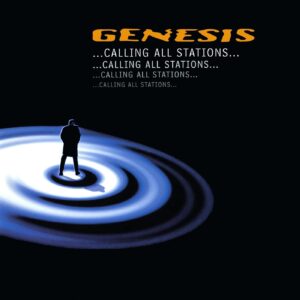
#15 Calling All Stations
1997
Genesis had successfully soldiered on after losing key members previously – they’d sustained the losses of Ant Phillips, Peter Gabriel, and Steve Hackett, and record sales had only accelerated. The loss of Phil Collins, however, was fatal – Calling All Stations is sterile arena-rock, with replacement singer Ray Wilson unable to inject his personality. ‘Congo’ remains a worthy addition to the band’s greatest hits.
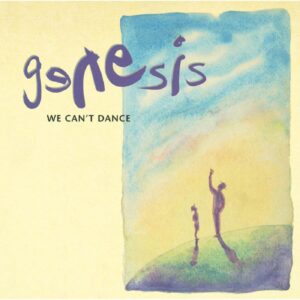
#14 We Can’t Dance
1991
Genesis and Phil Collins were still superstars in 1991, and We Can’t Dance sold by the truckload. It’s a victim of CD-era bloat, running for 70 minutes and housing soft-rock songs like ‘Hold On My Heart’ that would be better suited for Phil Collins’ solo career. There are still sublime moments – ‘No Son Of Mine’ is an inspired song for a band in their fourth decade, and ‘Never A Time’ is a tuneful yet forgotten single.
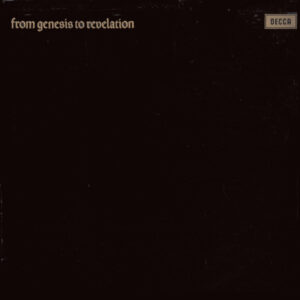
#13 From Genesis to Revelation
1969
Genesis were teenagers when they released their debut album. It’s produced by ex-Charterhouse pupil Jonathan King, who’d recently found success with the song ‘Everyone’s Gone To The Moon’. Progressive rock hadn’t been invented yet, and From Genesis to Revelation is comparable with the quirky 1960s chamber-pop of The Bee Gees. A tentative attempt at a Biblical concept album, it’s perfectly enjoyable with Gabriel’s husky voice and the group’s sense of melody.
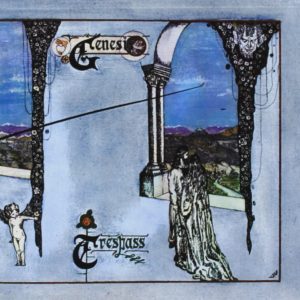
#12 Trespass
1970
Genesis became a full-fledged progressive rock band with their second album. Trespass is pretty but isn’t as engaging as their subsequent progressive rock records. It’s a mellow set of songs based around twelve-string guitar, and dynamic closer ‘The Knife’ is the clear standout. The introduction of Phil Collins on drums for the follow-up Nursery Cryme gave the band more impetus.
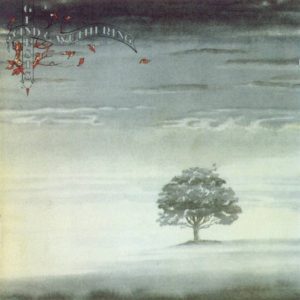
#11 Wind & Wuthering
1976
Wind & Wuthering is Genesis’ second album of 1976 and their last as a quartet. It’s uneven – classics like ‘Blood on the Rooftops’ and ‘Eleventh Earl of Marr’ share space with second-tier material like Banks’ ‘All In A Mouse’s Night’. It could gave been much stronger – it’s a shame that Steve Hackett contributions like ‘Inside and Out’ and ‘It’s Yourself’ were relegated to b-sides.
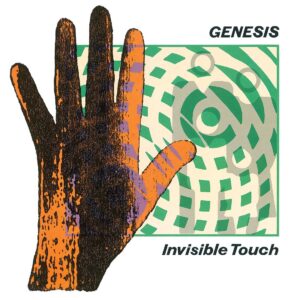
#10 Invisible Touch
1986
Genesis became the first band to place five singles from the same album in the Billboard 100 with Invisible Touch. The simpler arrangements and radio-friendly production made their material accessible to a wider audience but also alienated long-term fans. The material, however, is usually tuneful and memorable. The title track is a pop earworm while they revisit their prog heritage with ‘Domino’ and ‘The Brazilian’.
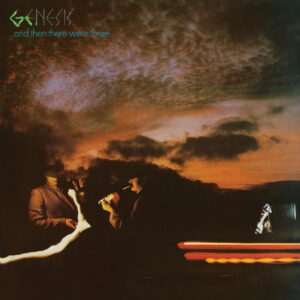
#9 …And Then There Were Three…
1978
Genesis’ first album as a three-piece is a little sleepy in places, relying on Phil Collins’ virtuoso drumming to keep things moving. Rutherford’s ‘Follow You, Follow Me’ signposted the pop direction that the band would soon pursue. There are plenty of enjoyable art-rock deep cuts, like ‘Ballad of Big’ and ‘The Lady Lies’.
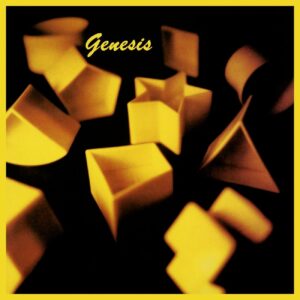
#8 Genesis
1983
Genesis’ twelfth album was self-titled to reflect its collaborative nature. Banks, Collins, and Rutherford came to the studio with no material prepared and worked up these songs from jams. The first side is fantastic, with ‘Mama’, ‘That’s All’, and the progressive rock of ‘Home By The Sea’. The second side is uneven, particularly the much-derided ‘Illegal Alien’.
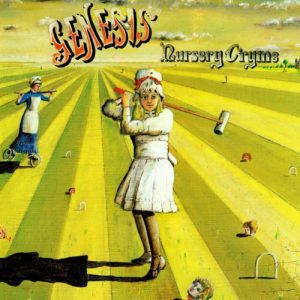
#7 Nursery Cryme
1971
Genesis’ first album as a quintet was a huge step up; the introduction of guitarist Steve Hackett and drummer Phil Collins added power and personality. The record’s main attractions are the three lengthy and macabre progressive rock epics – ‘The Musical Box’, ‘The Return of the Giant Hogweed’, and the bass-driven ‘The Fountain of Salmacis’. The shorter songs are good too – the theatrical ‘Harold the Barrel’ and the pretty ‘Seven Stones’ are great deep cuts.
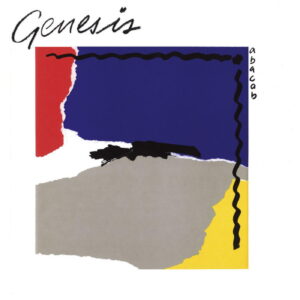
#6 ABACAB
1981
Genesis and Phil Collins were already stars by the time they recorded ABACAB, but to their credit they challenged themselves. Material that they felt sounded too similar to past triumphs was discarded – as a result, outtakes like ‘Paperlate’ and ‘Submarine’ that turn up on Extra Tracks 1976 to 1982 are often excellent. The songs that made the cut are often fascinating – pieces like ‘Keep It Dark’ and ‘Dodo/Lurker’ are among Genesis’ most intense moments, while the title track is a terrific pop song.
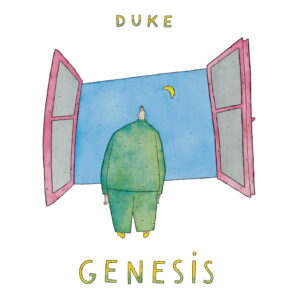
#5 Duke
1980
Phil Collins emerged as a songwriter on Duke. He wrote ‘Misunderstanding’ which, along with ‘Turn It On Again’, took a Genesis album to the top of the UK charts for the first time. Balancing the pop hits, there’s art-rock material like the ten minutes of ‘Duke’s Travels’. Duke serves as a grand summary of Genesis’ merits.
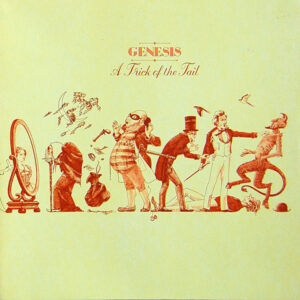
#4 A Trick of the Tail
1976
Genesis auditioned vocalists to replace Gabriel, but when none of them fitted, Collins was persuaded to sing lead. A Trick of the Tail is impressive and continues the excellence of the previous few Genesis records. Hackett’s unsettling ‘Entangled’, the fusion-inflected ‘Dance on a Volcano’, and the gorgeous ‘Mad Man Moon’ are standouts. The straightforward, yet gorgeous, ‘Ripples’, shows the group starting to branch out beyond progressive rock.
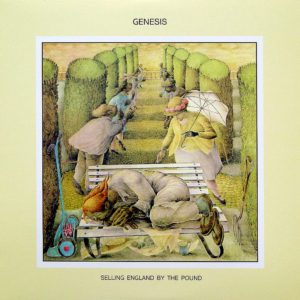
#3 Selling England by the Pound
1973
Genesis’ fifth album is often a fan favourite. There are a couple of slow spots. Banks’ lyrics on ‘Firth of Fifth’ are a letdown after his superlative piano introduction, while the theatrical ‘Battle of Epping Forest’ outstays its welcome. Songs like ‘The Cinema Show’, ‘Dancing With the Moonlit Knight’, and ‘I Know What I Like (In Your Wardrobe)’, however, are career highlights.
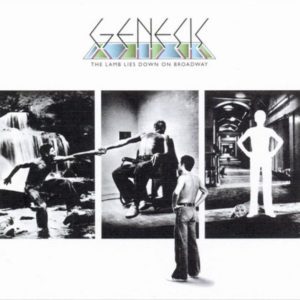
#2 The Lamb Lies Down on Broadway
1974
Peter Gabriel conceived the plot of The Lamb Lies Down on Broadway, perhaps the most ridiculous concept album of all time. It’s full of great songs though – Gabriel snarls his way through ‘In The Cage’, ‘The Carpet Crawlers’ is gorgeous, and ‘Lilywhite Lilith’ is a taut rocker. The New York City backdrop serves to shift the band’s sound from the pastoral twelve-string guitars of earlier records.

#1 Foxtrot
1972
Foxtrot houses Genesis’ most celebrated epic – the sidelong, apocalyptic ‘Supper’s Ready’. It’s enough alone to make the album essential – the sinister ‘Lover’s Leap’ section, the silly ‘Willow Farm’, and the intensity of ‘Apocalypse in 9/8′ are among the terrific components of the celebrated suite. But the first side is also strong – Tony Banks’ mellotron shines on ‘Watcher of the Skies’, while the King Canute tale is recounted on ‘Can-Utility and the Coastliners’. Gabriel’s silliness keeps Genesis fun.
Read More
63 Comments
Leave a Reply
Related Posts
Review Pages
Read about the discographies of musical acts from the 1960s to the present day. Browse this site's review archives or enjoy these random selections:
Blog Posts
I add new blog posts to this website every week. Browse the archives or enjoy these random selections:
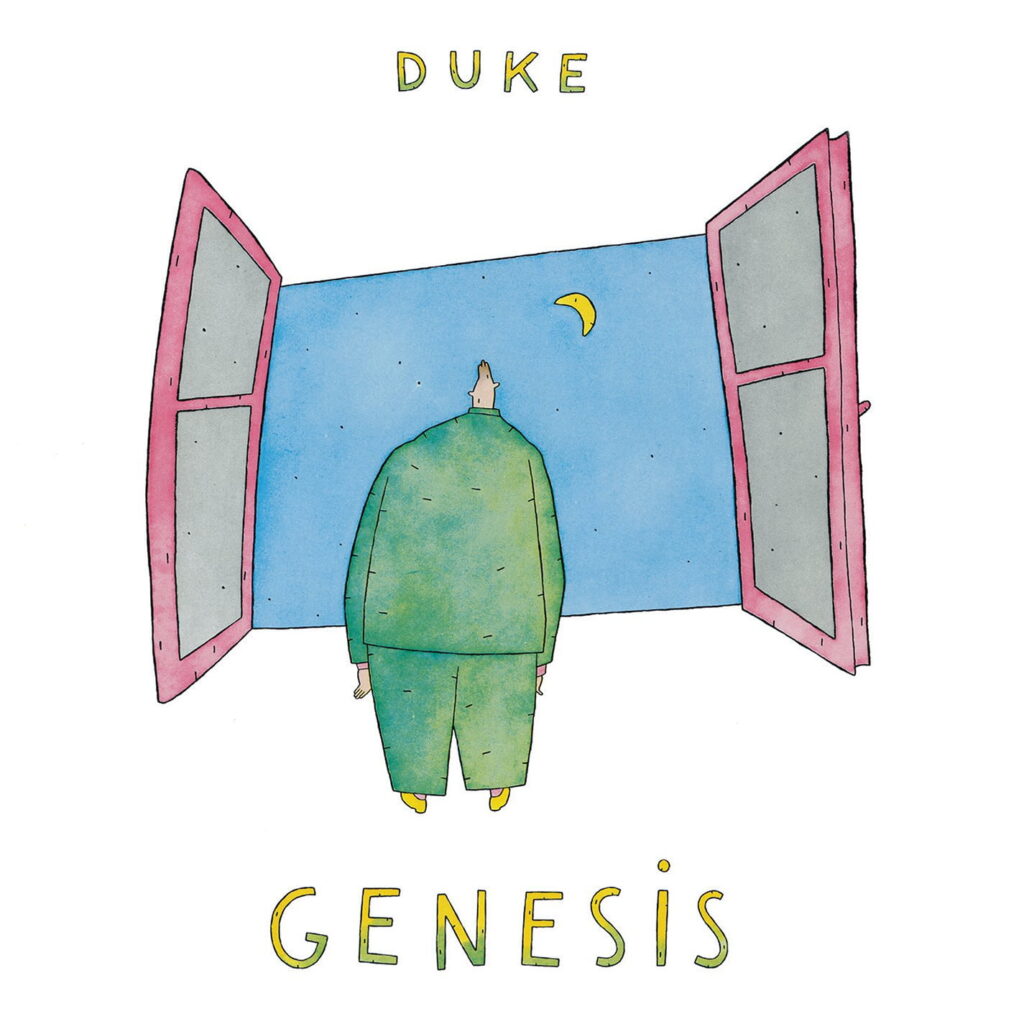
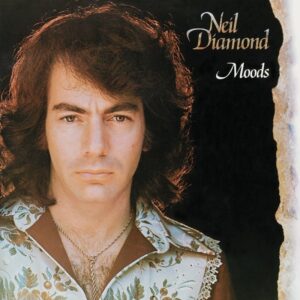
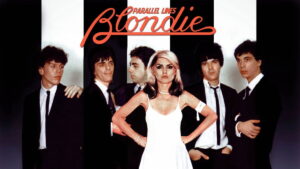



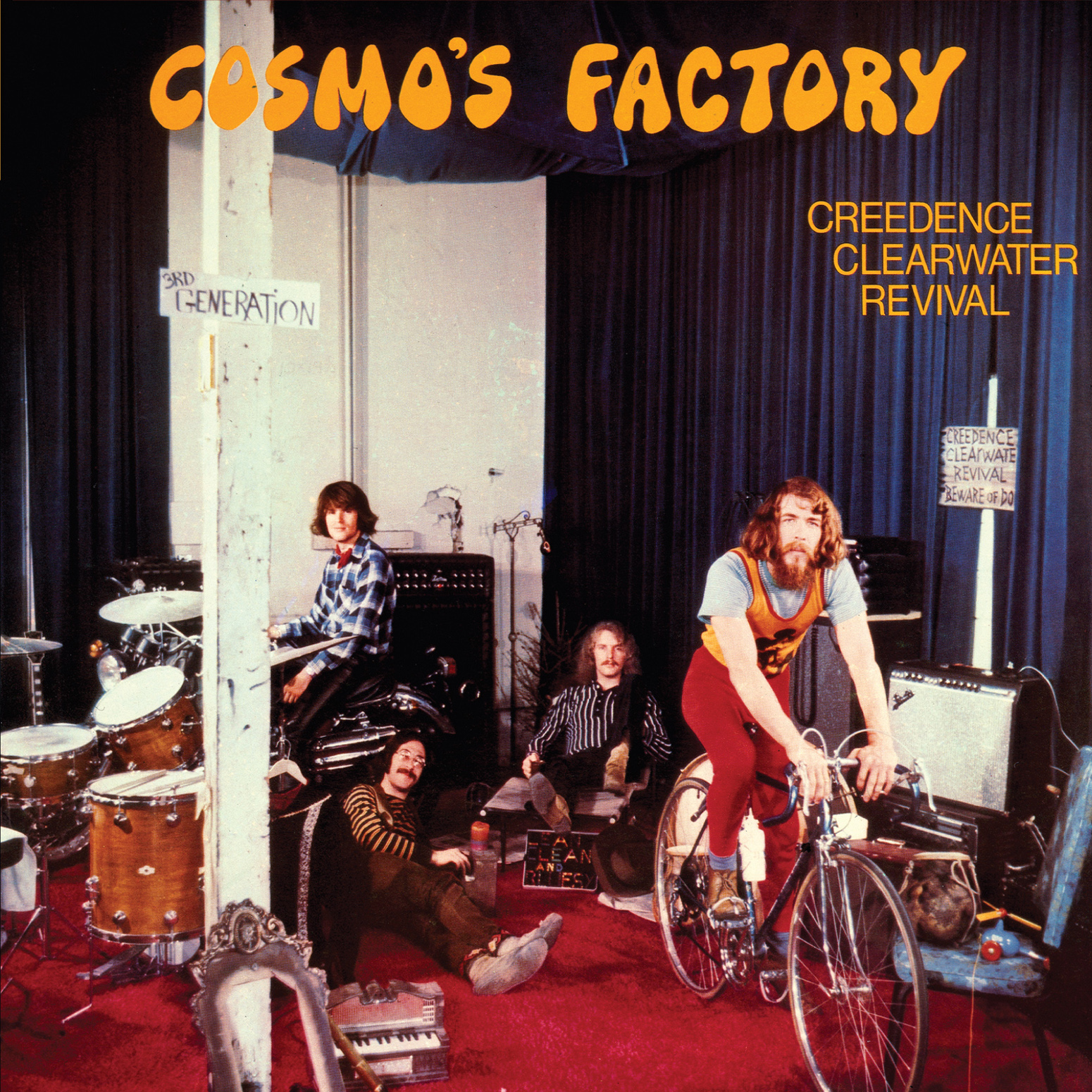

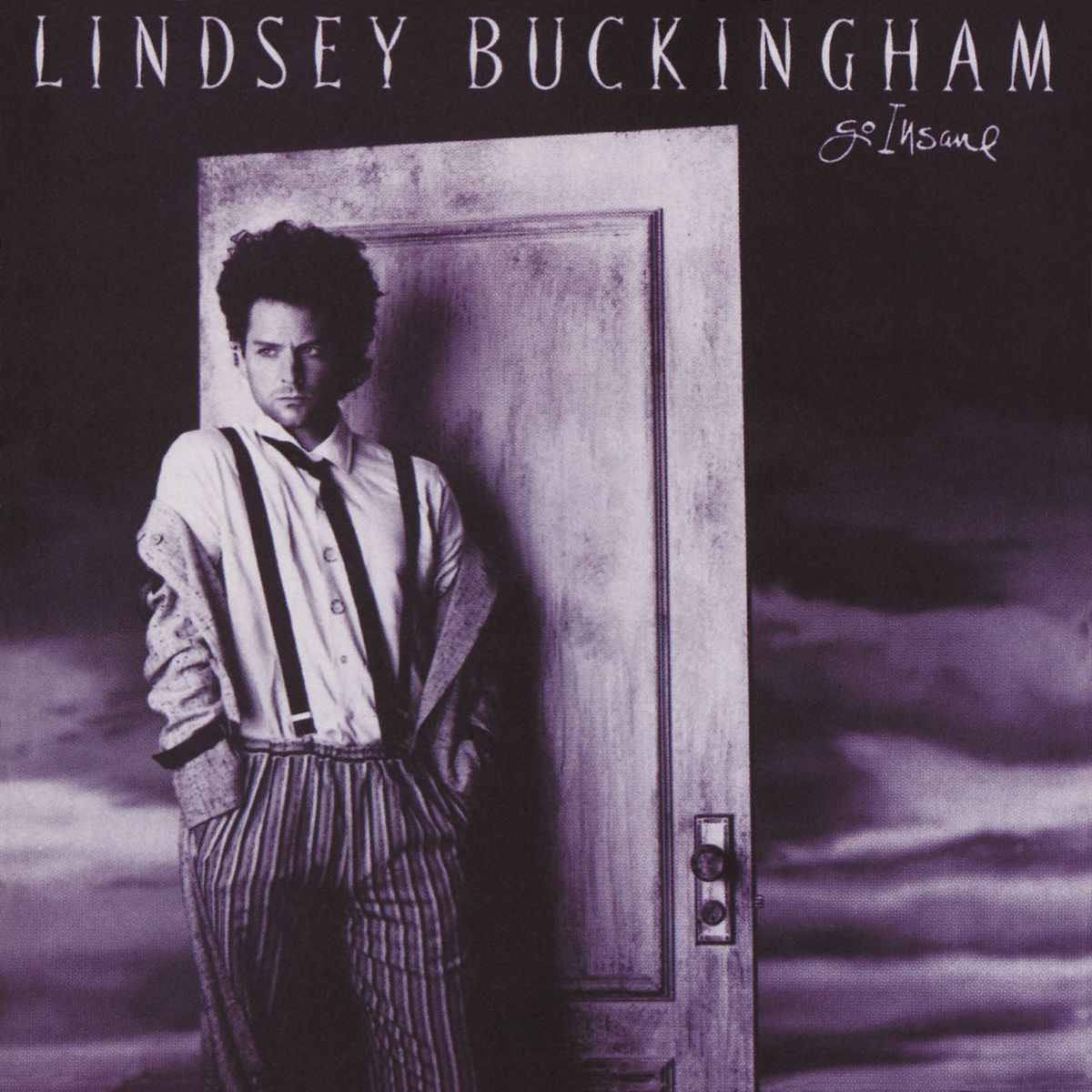
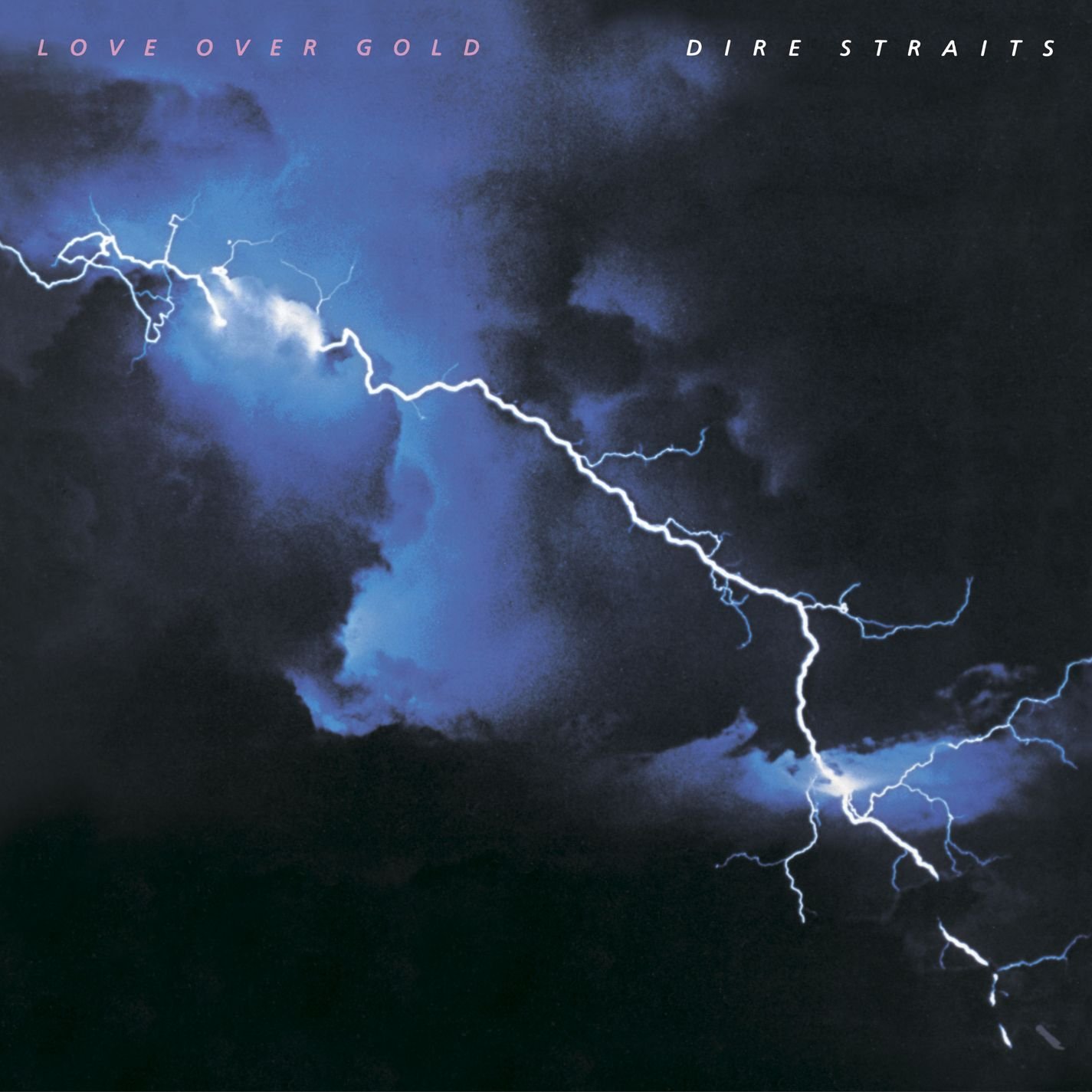


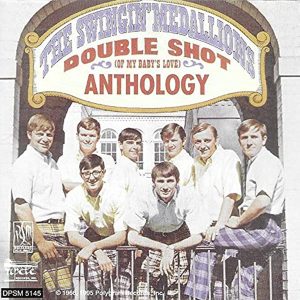



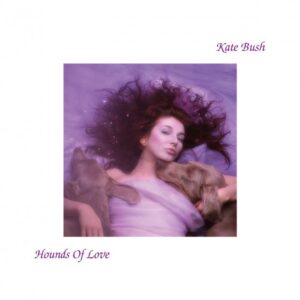
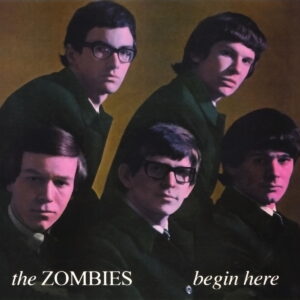
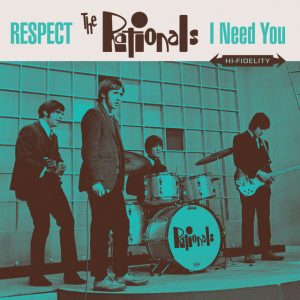
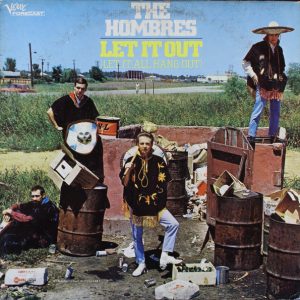




Heartily agree with your Top 3 but I get a bit bored with them after that.
Have you seen The Young Ones episode when Rik says “I’m Bored! Might as well be listening to Genesis”
I don’t remember that one. I used to have a jacket with ‘Very Metal’ on the back of it though, Vivian style.
Foxtrot by far is my favorite Genesis album, with “Supper’s Ready” being the definitive progressive rock track in my opinion. Selling England By The Pound and The Lamb Lies Down On Broadway are also without a doubt some of the most-listened albums in my collection.
Glad we agree – I don’t think I have a contraverisla top three, even though I know a lot of fans prefer Selling England.
Reblogged this on and commented:
This is a terrific review of one of the most renowned progressive rock bands of all time, Genesis, here presented by Aphoristic Album Reviews. The band’s early era in the early 1970s was fronted by Peter Gabriel and featured a deeply pastoral and surreal atmosphere before transitioning to the dark art-rock of Gabriel’s departure in 1974 and eventually a gradual hit-making pop phenomenon once drummer Phil Collins became frontman. Truly, one of the most interesting bands of all time.
I share this comment with no intention of offending any Genesis fan: I don’t see any significant legacy in their art after all these years. You see, the beginning of the 70s was a glory and classic period for rock music, taking advantage of all the 60s creations. Rock music was defining new styles as for example hard & arena rock (Led Zeppelin, Black Sabbath, The Who), Soft rock (Paul McCartney, Elton John), Singer-songwriters and folkies (Nick Drake, CSN, Neil Young, Joni Mitchel, Fairport Convention), proto world music like Santana, “We still love Chuck Berry” like the Rolling Stones, Proto punk with The Stooges, Glam (Davis Bowie, T Rex, Lou Reed) and Progressive rock (King Crimson, ELP, Yes, in some way Pink Floyd and of course Genesis). KC & ELP had virtuosity, Yes had 100 new ideas and some beautiful songs, Pink Floyd is Pink Floyd. And what about Genesis? No special virtuosity, no amazing ideas, no fun listening to their music. It was boring with Peter Gabriel and it was a sell out with Phil Collins. I am sorry guys. No mean to hurt anybody. It is just an amateur review.
I don’t mind people disagreeing, as long as they’re polite (which you were). I think a lot of Genesis’ appeal is good songwriting and Gabriel’s theatricism. They don’t have the virtuosity of Yes or King Crimson, although Collins is a very good drummer.
As my comment below implies, Genesis were a great band live – with or without theatrics. I simply don’t get how your earlier commenter reaches his conclusion after the introduction. Boring? Really ? Ah well, we all come with our biases.
Mostly fair assessments here, Graham, although I always feel the need to defend Calling All Stations. It’s far from a perfect album, especially suffering from ’90s CD bloat, but there’s a lot of great material on that album and it’s far from sterile arena rock. I love the moodiness and Ray Wilson’s voice was a nice callback to Gabriel’s vocals without being a sound-alike. I certainly wouldn’t put it among my all-time favorite Genesis records but I still play it regularly. For my tastes there are at least 5 or 6 records that are stronger than The Lamb Lies Down On Broadway, but I understand why so many fans consider it the peak of their career. That’s the case with a lot of double-albums. I think the fact that Gabriel wrote all the lyrics works against it, even though it makes sense for the story concept. My Top 5, in no particular order, are probably Foxtrot, Selling England By The Pound, Nursery Cryme, A Trick Of The Tail and Genesis (aka Mama).
Where would you rank Calling All Stations? I think Peter Gabriel and Phil Collins are both exceptional vocalists, and they’re both amazingly good at bringing potentially cheesy Banks and Rutherford songs to life.
I think Ray Wilson would have quickly become as distinctive a vocalist for Genesis if the other two kept things going for another couple of years. I own all of his solo material and even on the weaker material his voice shines through. Banks doesn’t get enough credit as a master of writing beautiful melodies. He’s not as flashy as Wakeman or Emerson but many of Genesis’ catchiest tunes come courtesy of Mr. Banks.
As for Calling All Stations, for my listening pleasure I would rank it above From Genesis To Revelation, Invisible Touch and We Can’t Dance, and probably on the same level as Trespass and And Then There Were Three.
Bank and Rutherford are both very good tunesmiths. I think good tunes are the band’s main calling card – it’s why they thrived as prog band and as a pop band.
Might be worth writing a defense of Calling All Stations sometime? I do agree that Ray Wilson wasn’t really given the chance to grow into the role.
“Genesis became the first band to place five singles from the same album in the Billboard 100 with Invisible Touch. ”
I think Thriller might want to have a word with you…
First band – and first international act.
That makes more sense. Though Little Steven now probably wants a word with ya… 😉
I have a soft spot for Invisible Touch probably because they were so prolific in 1986 on the charts. Phil Collins is a legend. But I’ve always wondered what their music would have been like if Gabriel had stayed in the band. Would their legacy have been any different?
I just don’t think Gabriel would have lasted – just seems like a guy who would have wanted to explore other areas. I don’t think he’d have done anything as straightforward and poppy as Invisible Touch – Collins liked R&B, while Gabriel liked dabbling in world music.
Lovely to see Duke and Trick polling well. I think my list would look quite different, as I’d definitely include ‘Live’ in the top five and ‘Seconds out’ in the top 10.
(Don’t you ever sleep, Graham? Steely Dan and now Genesis. What about next week, the Rolling Stones?!)
That is two big 1970s acts in a few days. A lot of my Stones fandom is centred on 1968-1972 – I need to spend more time with the 1960s stuff and hear a couple of the mid-1970s albums before I tackle anything like that. Back to Nuggets this weekend.
Great! (I’m still one song behind. Might wait and do a double shot)
1. Foxtrot
2. Selling England
3. Live
4. A Trick of the Tail
5. Duke
6. Nursery Cryme
7. Wind and Wuthering
8. Invisible Touch
9. Trespass
10. Seconds Out
11. Revelation
12. Lamb Lies Down
13. Genesis
14. ABACAB
15. We Can’t Dance
16. And Then There Were Three
17. Calling All Stations
Looks like we agree on quite a few, but also have some substantial differences. I like Lamb, ABACAB, and Three a lot more than you do, and you like Wind and Trespass moe than I do.
One of the nice things about a substantial catalogue is noticing the overlaps and divergences.
Years ago, when I did a Top 10 Yes albums post, a couple of my choices drew some heat from ‘new’ visitors. An interesting phenomenon.
Great list. I have never explored 70’s Genesis. I really only know the 80’s stuff so I need to venture back in time with them.
The Gabriel stuff is pretty oddball sometimes. I didn’t want to put too many spoilers in for Lamb, but it involves raven phallic theft.
Alrighty that. Now I want to hear that one.
“I wandered lonely as a cloud
Till I came upon this dirty street
I’ve never seen a stranger crowd
Slubberdegullions on squeaky feet”
Nice!!
Great review, Graham. There are aspects of this band throughout their existence that make them worth listening to, and some that are less appealing. I’ve been discovering the early years for myself recently, but I have good feelings and memories attached to those ’76-81 albums.
That 1976-1981 interzone is really interesting – in some ways, And Then There Were Three feels like a dead end before they reinvented themselves with Duke.
You have some real Genesis fans here so I can’t add much but…I am liking what I’m hearing from the early seventies especially the Foxtrot album which you featured some songs at one time. I would listen to that more because I’m tired of the 80s hit albums…although I would like to revisit ABACAB.
Foxtrot is an absolute classic and a benchmark of the progressive rock era. The way it usually works, at least in my experience, is that progressive rock fans will remain faithful to the Gabriel-era albums and those who like art-rock/80s pop will go for the Collins-era material. Peter Gabriel would eventually drift towards pop as well, but with a more experimental intent. Foxtrot is usually considered early Genesis at its finest because of lyrical and musical complexity, the use of multi-suite integration, and all band members playing to their fullest potential. My favorite tracks are the 20 minute+”Supper’s Ready,” “Can Utility and the Coastliners,” and “Watcher of the Skies.”
Thanks… what surprised me was the pop melodies of the Gabriel era. On the whole I shy away from progressive (Yes, ELP etc) but I’ve liked what I’ve heard from this period. 20 minute songs don’t bother me as long as the melodies are true.
Lots of weird little pop songs on The Lamb Lies Down on Broadway too – although they’re interspersed with proggy instrumentals.
https://www.youtube.com/watch?v=etakpPu_QJo
My list has Foxtrot at number one also. Selling England I place at number two. Really, though, Genesis had two distinct eras: the progressive Gabriel years (and I include the non-Gabriel LPs Wind and Trick in that category) and the more commercial Collins years. So while your list is a fun exercise, it’s like ranking apple varieties with orange varieties. I think And Then There Were Three is the album that bridges the two eras. Someone mentioned Tony Banks as being underrated, and I heartily agree. BTW, my first concert ever was Genesis, in spring 1978, and it’s still in my top two concerts.
Banks and Rutherford are both very good tunesmiths I reckon – they were the constants, and Genesis always had an abundance of solid tunes. Do you like the early 1980s, or do you jump ship after Then There Were Three?
Yes, I jumped ship as soon as I heard Duke. It seemed obvious to me that the band wanted to head in a poppy, Phil Collins direction, which didn’t interest me. I love great pop, but don’t consider Genesis a great pop band. And the album was played to death here in the states. I thought Collins was a talented frontman, vocalist, and absolutely incredible drummer, but a weak songwriter, despite his commercial success. Gabriel I consider a true artist, a visionary, and a much better writer.
I’ve never heard anything from Duke or ABACAB on the radio, so that’s maybe why I had a different reaction to them. Only ever get ‘Follow You Follow Me’ or stuff from Genesis, Invisible Touch, and We Can’t Dance.
I thought “Follow You Follow Me” was good keyboard-centered pop, a touch of old Genesis with the new. ABACAB was all over the radio here in the states, worse than Duke. Yeah, one of the reasons I love early Genesis is their unabashed Englishness. As time went on, though, they seemed to want to become Yanks. For Yank music, give me Chuck Berry or Bruce Springsteen!
I didn’t really think about the American thing – I guess Collins is an avid collector of Alamo memorabilia….
I’m genuinely surprised at how many Phil Collins-era Genesis fans there are on here, although that comes from following the true blue progressive rock fans, and as far as Genesis goes, they can be pretty insular with their Peter Gabriel allegiance, often not going any further than A Trick Of The Tail or Wind and Wuthering, and the hardcore fans usually terminate at The Lamb Lies Down On Broadway. The comments here have been making me want to reassess those later albums, though.
I tend to enjoy pop music, although I draw the line at some things – for example I doubt I’d enjoy much that Collins released post the 1980s as a solo artist.
Kudos to you for undertaking such a Herculean task! I’ll take your recommends as is, though I might’ve ranked Invisible Touch higher…
The songs on Invisible Touch are really good – I just find the radio-friendly mix a little too straightforward to reward repeat listens.
Truth, and in fairness, I probably give it higher vote for my own childhood nostalgia… man, remember that Spitting Image video? Hahaha
I remember hearing the We Can’t Dance stuff all over the place, but I was pretty young (6 or 7) when Invisible Touch came out.
I had to look up the release date. I was 12!
And you were In Too Deep?
At 12, more like a Land Of Confusion.
Ooo, great list! I actually listen more to Philisis (through “Abacab”) more than I do Peter Genesis these days, strangely enough. And I’m much more fond of the debut and “Trespass” than you are. I guess my list in same order would look something like this (today anyway, ask me tomorrow and it might change):
#15. Calling All Stations
#14. We Can’t Dance
#13. Genesis
#12. Invisible Touch
#11. Nursery Rhyme
#10. A Trick of the Tail
#9. From Genesis to Revelation
#8. Trespass
#7. And Then There Were Three
#6. Foxtrot
#5. Wind and Wuthering
#4. Selling England By The Pound
#3. Abacab
#2. The Lamb Lies Down on Broadway
#1. Duke
I think at this point I’m probably more likely to reach for Duke or ABACAB, just because I only picked up on them relatively recently, while I spent a lot of time with the 1971-76 stuff in my early twenties.
Nice to see the epic meditation crack the top 10!
I feel like he maybe reads more into it that is actually there….
We’ve been down this road a couple times but it’s a good road. It’s time I lived in ‘Lamb’ for a while.
I should sit down and listen to it in full sometime. It’s a bit of a monster though.
It’s due for a CB take. I got into the whole idea of it. Great musical ride but a “monster” like you day. Friend of mine has an internet radio show and played ‘Counting Out Time’ tonight. Sounded real good.
I can’t disagree with your top choice! And, your rankings for Genesis show you prefer the Peter Gabriel-era Genesis. Genesis is a great band with two eras: progressive rock and more pop rock!
Thanks for writing in! I’m definitely in team Gabriel, but there’s lots of great stuff in the Collins era too. Top 6 is split evenly between Gabriel and Collins.
I totally agree. There are some great Collins-era Genesis songs!
[…] Genesis Albums Ranked […]
It’s pretty simple: popular or artistic.
If you want background music while driving or at a club, then listen to post-Gabriel (except Trick of the Tail).
When your creative inspiration for a title is “ababacab” (imagine Beethoven’s new hit record “CDEFG”!) and similar empty lyrics from Phil, then you know there is an artistic void and you’re a professional band selling records. Nothing wrong with that. Just don’t confuse “popular” music it with quality or art. Often its appeal does not stand the test of time. I still sing out loud to Beatles pop songs and enjoy them. Those are great pop songs, which I appreciate.
BUT….
If I want to listen to music and appreciate it as an art and creative work, I’m pulling out the early Genesis albums (yes, the vinyl things and not CDs). I don’t like all of it from a purely musical sound, but I enjoy hearing them experiment and develop and engage the listener.
Foxtrot is never better than Selling England By The Pound. The highlight of Foxtrot is Suppers Ready and not much of other songs– though Watcher of the skies is good if not great. And putting Wind and Wuthering as one of the worst albums just ridiculous, unless the reviewer is a pure pop lover. Wind and Wuthering is largely not a pop album. Its a difficult album. Way difficult than Trespass and even the Lamb (which surprisingly has less fan favourite songs than other albums considering the number of songs in it).